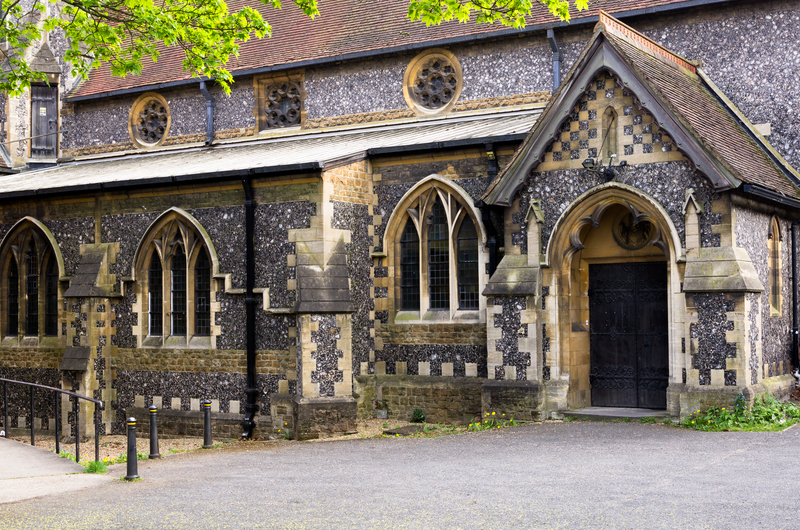Lifting the Curtain on Piano Moving: Why You Need Experts
Posted on 16/08/2025
Lifting the Curtain on Piano Moving: Why You Need Experts
The world of piano moving is more complex and intriguing than most people realize. Whether you own a grand piano that has become a family heirloom, a cherished upright in your living room, or a digital baby grand, moving a piano is not a task for the casual DIY enthusiast. Just as you rely on trained professionals to care for your instrument, you should also depend on professional piano movers to transport it. In this article, we'll lift the curtain--and the myths--on the subject of piano relocation, showing you exactly why expert piano movers are the key to the safe, secure, and successful transport of your prized instrument.

The Unique Challenges of Piano Moving
Before delving into why hiring expert piano movers is essential, it's important to understand exactly what makes moving a piano so challenging. Unlike most pieces of furniture, pianos are not simply heavy--they're also incredibly delicate, intricately constructed, and sensitive to the slightest jolt or drop.
- Weight and Dimensions: Pianos can weigh anywhere from 300 to over 1,200 pounds, with grand pianos often requiring four or more people to move safely.
- Delicacy: The internal mechanisms of a piano feature thousands of parts, including hammers, strings, felt components, and keys, all precisely aligned. Even a minor bump can disrupt their harmony.
- Shape: Pianos are awkwardly shaped, with much of their mass distributed unevenly. An incorrect lifting technique can spell disaster.
- Valuable Finish: Pianos often have highly polished or antique finishes that are easily scratched or chipped during a move.
- Environmental Sensitivity: Sudden shifts in humidity, temperature, or atmospheric pressure during the move can cause permanent damage.
All of these factors create a perfect storm for potential disaster if the piano is not handled correctly. It becomes clear that skilled piano movers are not a luxury; they are a necessity.
The Hidden Risks of Amateur Piano Moving
Many people look at moving a piano as just another challenge to conquer. After all, how hard can it be to move something on casters? This approach, however, exposes you to a range of hidden risks--some of which might not be obvious until it's too late:
- Personal Injury: Attempting to move a piano without proper training or the right equipment can easily result in strained muscles, back problems, crushed fingers, or even worse injuries.
- Property Damage: Door frames, walls, stairs, and flooring are all frequently damaged when a piano is carelessly maneuvered.
- Piano Damage: The risk of dropping, tipping, or even slightly bumping your piano can result in expensive repairs or permanent damage to internal components--and ruin its sound quality forever.
- Financial Loss: Your insurance may not cover damages caused by improper handling or unauthorized movers.
In short, moving your piano with friends, family, or generic movers might seem thrifty, but the potential consequences can be catastrophic.
What Makes Expert Piano Movers Different?
So, what separates a team of expert piano movers from the average moving crew? The answer lies in their specialized training, equipment, and experience, as well as a deep understanding of what's at stake during a move.
Specialized Training
- Technical Knowledge: Piano movers are trained to understand the structure and mechanics of all types of pianos, from uprights to concert grands.
- Handling Techniques: They master safe lifting and carrying techniques, including how to balance the piano and avoid injury or tipping.
- Packing Procedures: Experts know how to wrap, pad, and crate pianos to guard against scratches, chips, or other forms of damage.
State-of-the-Art Equipment
- Piano Dollies: Specially designed to handle extreme weights without damaging floors.
- Custom Straps and Hoists: For using secure lifting methods, especially when navigating stairs or tight spaces.
- Protective Padding: Heavy-duty blankets and padding to prevent scratches, dents, or shocks.
- Enclosed Trucks: Climate-controlled environments to protect the instrument from temperature and humidity changes.
Comprehensive Insurance Protection
Professional piano moving companies offer full insurance coverage for your instrument during all phases of transportation. This peace of mind is invaluable if your piano is irreplaceable or of significant value.
Experience in Every Scenario
- Residential moves
- Concert halls and theaters
- Historic and antique pianos
- Long-distance or interstate relocations
- Complex logistics (stairs, elevators, narrow hallways)
Trusting experts to move your piano isn't just about lifting and carrying--it's about ensuring a smooth, stress-free experience that keeps your instrument in perfect condition.
The Step-by-Step Process: How Professionals Move Your Piano Safely
Understanding how piano moving experts handle your precious instrument can demystify the process and highlight the value they bring. Here's a step-by-step overview of what happens during a professional piano move:
- Assessment: The movers inspect your instrument and its environment. They identify any obstacles (stairs, turns, doorways) and select the right equipment.
- Preparation: All movable parts, such as pedals, lids, and music stands, are secured or detached. The piano is thoroughly wrapped and padded.
- Lifting and Positioning: Using advanced techniques, the team lifts and transfers the piano onto a dolly or skid board, balancing weight distribution carefully.
- Transportation: The piano is loaded onto a specially prepared truck. Inside, additional padding and securing straps prevent movement during transit.
- Delivery and Placement: At the destination, the process is reversed. The movers navigate the new environment, ultimately positioning the piano exactly where you want it.
- Final Inspection: The team checks your piano for any signs of disturbance or damage, ensuring your complete satisfaction.
Myths About Piano Moving--Debunked
There are several persistent myths surrounding piano transportation that can lead to risky decisions. Below, we debunk the most common misconceptions:
- "It's just a heavy piece of furniture." In reality, pianos are musical masterpieces with fragile internal workings.
- "Any mover can handle it." General movers lack the expertise, tools, and knowledge required for safe piano movers.
- "As long as there are enough people, it's safe." More hands do not equal more safety if those people are untrained.
- "Using the built-in wheels is fine." Piano casters are not designed for long distances and can break or damage floors.
The Long-Term Benefits of Professional Piano Moving
The main advantage of hiring professional piano movers is obvious: protection for your instrument and peace of mind for you. But there are other, less obvious reasons, too:
- Save Money in the Long Run: Even a small repair for a slightly damaged piano can cost thousands. Proper handling prevents these expensive issues.
- Minimize Downtime: Professionals work efficiently and can get your piano to its new home with minimal disruption to your routine.
- Preserve Value: Whether for insurance or resale, keeping your piano in pristine condition is crucial.
- Reduce Stress: Knowing that your prized instrument is in expert hands allows you to focus on other aspects of your move.
Choosing the Right Piano Mover: What to Look For
Not all piano moving professionals are created equal. When entrusting your instrument to someone, keep the following in mind:
- Experience: Look for companies with a strong track record and reviews that cite piano moving specifically, not just general moving.
- Certification and Insurance: Verify full insurance coverage and any association with organizations like the Piano Technicians Guild.
- Equipment: Ask about the tools and vehicles they use. Specialized gear is a must.
- Transparent Pricing: Insist on written quotes and clear explanations of what's included and what may cost extra (like stairs or long carries).
- Professionalism: Pay attention to their willingness to answer questions and offer advice. Reliable piano movers see themselves as partners, not just service providers.

Frequently Asked Questions About Piano Moving
How much does it cost to move a piano?
The cost of piano moving depends on several factors--type of piano, distance, number of stairs, and special handling requirements. Expect local moves to start around $150-$500, with long-distance moves costing significantly more.
Can any moving company move a piano?
No. Always seek a company with proven experience in piano transportation. Generalists are far likelier to cause accidental damage.
Is it possible to move a piano upstairs or to a high-rise?
Yes, but only with the correct equipment and expertise. Specialized piano movers regularly handle stairs and elevators--never attempt this yourself.
Will moving affect how my piano sounds?
Properly moved pianos should arrive unharmed. However, changes in humidity or positioning may slightly affect tuning; plan to have it re-tuned after the move.
Conclusion: Trust the Experts to Move Your Piano with Care
When it comes to moving a piano, the details really do matter. From safeguarding its exquisite mechanics and finish to minimizing risk to both people and property, the role of expert piano movers is invaluable.
Rather than gambling with an irreplaceable treasure--or shouldering the stress yourself--let proven professionals take the weight (literally) off your shoulders. By choosing a company that specializes in piano relocation, you're not just moving an instrument; you're protecting the memories, investments, and passion that your piano represents.
Lifting the curtain reveals one essential truth: when it comes to piano moving, expertise isn't a luxury--it's a necessity.
Choose wisely, and your piano will keep making beautiful music for generations to come.
Latest Posts
Keys to a Calm and Organized House Relocation
Perfect your bed and mattress move with proven strategies
Embrace a House Move Without the Stress
